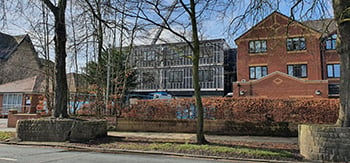Oaklands Hospital Specialists
-
Professor Khurshid Akhtar
Prof Khurshid Akhtar is a Consultant General and Upper GI Surgeon in Manchester
Read more -
Mr Qutayba Almerie
Mr Qutayba Almerie is a Consultant Upper GI, Bariatric and General Surgeon. He is based in Manchester Royal Infirmary (part of Manchester University NHS Foundation Trust).
Read more -
-
Mr Nasir Iqbal
Mr Nasir Iqbal is a consultant General Surgeon in Manchester and Lancashire who specialises in colorectal surgery and endoscopy
Read more -
Mr Manmohan Madan
Mr Manmohan Madan is a Consultant General Surgeon in Lancashire and Manchester who specialises in general surgery and vascular surgery.
Read more -
Mr John Saunders
Mr John Saunders is a Consultant Upper GI Surgeon in Manchester, where he specialises in Weight loss, Upper GI and General Surgery
Read more -
Mr Javed Sultan
Mr Javed Sultan is a Consultant General Surgeon, specialising in Weight Loss Surgery in Manchester
Read more -


